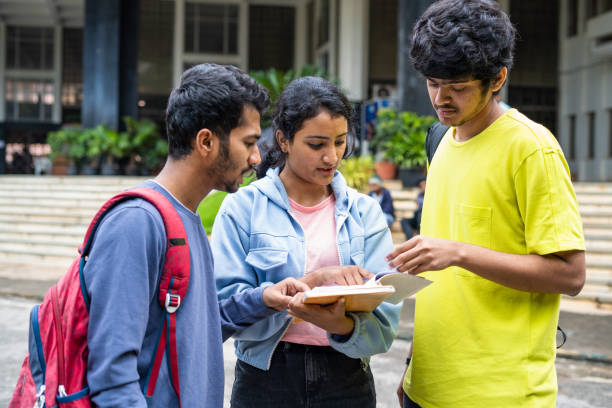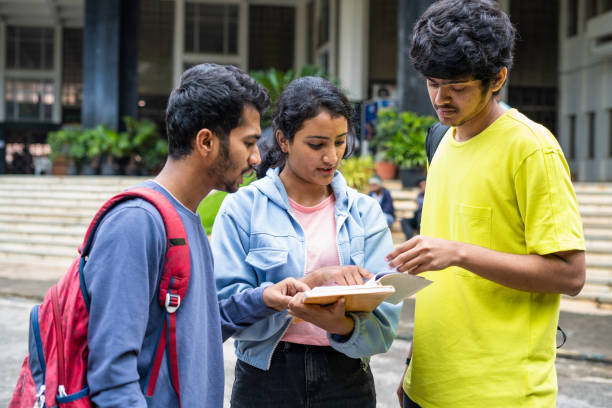
Student success depends on more than just academic competency. A few essential skills include communication, critical thinking, time management, teamwork, and flexibility.
Achieving mastery in these enables students to face academic challenges, develop sound interpersonal relationships, develop self-confidence and thrive in professions down the line, establishing a solid foundation for a lifetime of success.
This article discusses the top 10 skills that students must possess in order to be successful.
Skill 1: Critical Thinking and Problem-Solving
Critical thinking and problem-solving are key skills that enable students to evaluate information, analyze choices, and make informed decisions. These competencies promote questioning, creativity, and logical reasoning.
Through critical thinking, students learn to wisely tackle challenges, come up with innovative solutions, and respond to new situations, equipping them for academic achievement and real-world problem-solving in their professional careers.
Skill 2: Effective Communication
Good communication is essential in conveying ideas in a clear manner and establishing solid relationships. It includes active listening, effective speaking, reflective writing, and grasping non-verbal communication. Good communication skills enable students to work together effectively, express themselves confidently, and prevent misunderstandings.
Acquiring this skill not only enhances performance in school but also equips students for success in their professional and personal lives in the future.
Skill 3: Digital Literacy and Technology Skills
Technology competency and digital literacy are paramount in the current digital age. Students should be able to use computers, software, and the internet effectively and securely. They need to understand how to use these technologies to conduct research efficiently, work collaboratively, and communicate.
Technology literacy also prepares students for contemporary work environments, enabling them to cope with technological advancements, think creatively and solve problems, and remain competitive in an ever-changing environment.
Skill 4: Creativity and Innovation
Creativity and innovation enable students to think differently and create novel solutions to challenges. Creativity, experimentation, and risk-taking are fostered through these skills. Students are able to address challenges in new ways and bring novel contributions by developing creativity.
Innovation also makes students resilient because they are taught to transform and enhance concepts, making them ready for changing future careers.
Skill 5: Collaboration and Teamwork
Collaboration and teamwork are crucial to accomplishing collective objectives and creating good interpersonal relations. Teamwork helps students listen, appreciate various views, and allocate duties properly. It also promotes problem-solving and conflict management skills.
By building collaboration skills, students learn to make a positive contribution, assist others, and thrive in both academic undertakings and future professional life.
Skill 6: Time Management and Organization
Time organization and management are key abilities that enable students to prioritize tasks, keep up with deadlines, and minimize stress. Through advanced planning, goal-setting, and a structured schedule, students will be able to juggle academics, extracurriculars, and personal obligations more efficiently.
These skills enhance productivity and concentration and create the foundation for success in academic and professional life throughout their lives.
Skill 7: Adaptability and Resilience
Flexibility and resilience empower students to deal with change, failure, and surprise adversity with a positive attitude. Adaptability refers to speed in adapting to new situations, while resilience implies maintaining strength and motivation in adverse circumstances.
Mastering these capabilities keeps students flexible, assured, and solution-finding, empowering them to flourish in dynamic learning, personal, and professional worlds throughout their lives.
Skill 8: Emotional Intelligence and Social Skills
Emotional intelligence and social skills are necessary to understand and manage emotions, develop empathy, and have healthy relationships. Students with high emotional intelligence are able to communicate well, resolve conflicts in a peaceful manner, and work harmoniously with others.
These abilities also assist in stress management and making wise decisions, creating a conducive environment for academic achievement, personal development, and future career growth.
Skill 9: Leadership and Decision-Making
Leadership and decision-making abilities enable students to be proactive, motivate others, and lead groups toward a shared purpose. Effective leaders are good listeners, clear communicators, and wise decision-makers.
The development of these skills creates confidence, accountability, and critical thinking. Through the exercise of leadership and decision-making, students equip themselves to face real-world problems and thrive in academic and professional settings.
Skill 10: Financial Literacy and Responsibility
Financial responsibility and literacy educate students to spend money wisely, prepare a budget, and make sound financial decisions. Learning concepts such as spending, investing, and saving enables students to secure their future.
Acquiring finances at an early stage ensures independence, avoids the risk of debt, and equips students to handle real-world finances with confidence and wise decision-making.
Challenges in Skill Development
Developing essential skills can be challenging because of
- Lack of motivation
- Lack of awareness
- Fear of failure
- Limited resources
- Poor guidance
- Resistance to change
- Time management issues
Practical Strategies for Developing These Skills
To overcome hurdles in skills development, parents, teachers and students can take the following steps:
- Encouraging Real-World Applications
Promoting real-world applications enables students to relate theoretical knowledge with real-life experiences, making learning more relevant. Internships, projects, volunteering, and simulations enable them to implement skills, gain confidence, and develop problem-solving skills. - Using Technology for Skill Development
Utilizing technology for skill-building provides students with access to web-based courses, learning apps, virtual simulations, and interactive resources. It boosts learning, aids practice, and offers customized resources to develop required skills efficiently. - Creating a Growth Mindset
Developing a growth mindset makes students see challenges as learning opportunities. It instills resilience, encourages constant improvement, and makes them believe that effort and determination result in success. - Practicing Self-Discipline and Responsibility
Developing self-discipline and responsibility enables students to remain focused, prioritize time well, and accomplish goals. It promotes independence, enhances work ethic, and creates habits necessary for long-term academic and personal achievement.
Conclusion
Fostering key skills is important to the success of students in academic, career, and life settings. With appropriate mindset, daily practice, and support, students can overcome difficulties, develop confidence, and get themselves ready to meet a rapidly changing and dynamic world. New Horizon International School emphasizes skill development through the introduction of various extracurricular activities.
Frequently Asked Questions (FAQs)
What are the Most Important Skills Students Need Today?
Communication, digital literacy, technological awareness, adaptability, resilience, emotional intelligence, critical thinking, problem solving, creativity, innovation, collaboration, time management and organization, leadership, decision-making, and financial management are the most important skills students must develop in this dynamic era.
How can Students Improve their Problem-Solving Abilities?
Problem-solving skills can be enhanced by students through practicing critical thinking, case study analysis, group discussions, getting feedback, dividing problems into smaller pieces, and using creative thinking to explore several solutions.
Why is Digital Literacy Important for Students?
Digital literacy is essential for students since it allows them to conduct research, communicate online, use technology ethically, and prepare for the workplace, thus equipping them to be adaptable and competitive in a digital age.
What are some Effective Ways to Build Leadership Skills in Students?
Leadership skills can be developed in students through student councils, leading group projects, volunteering, club membership, decision-making practice, mentorship, and participation in activities promoting responsibility, teamwork, and communication.



